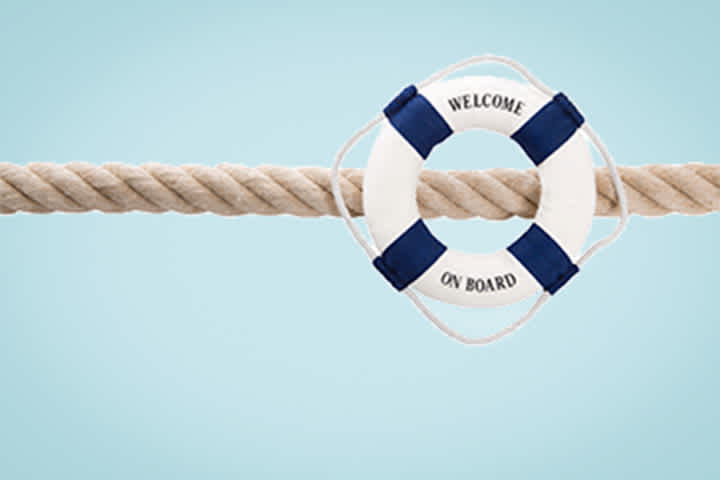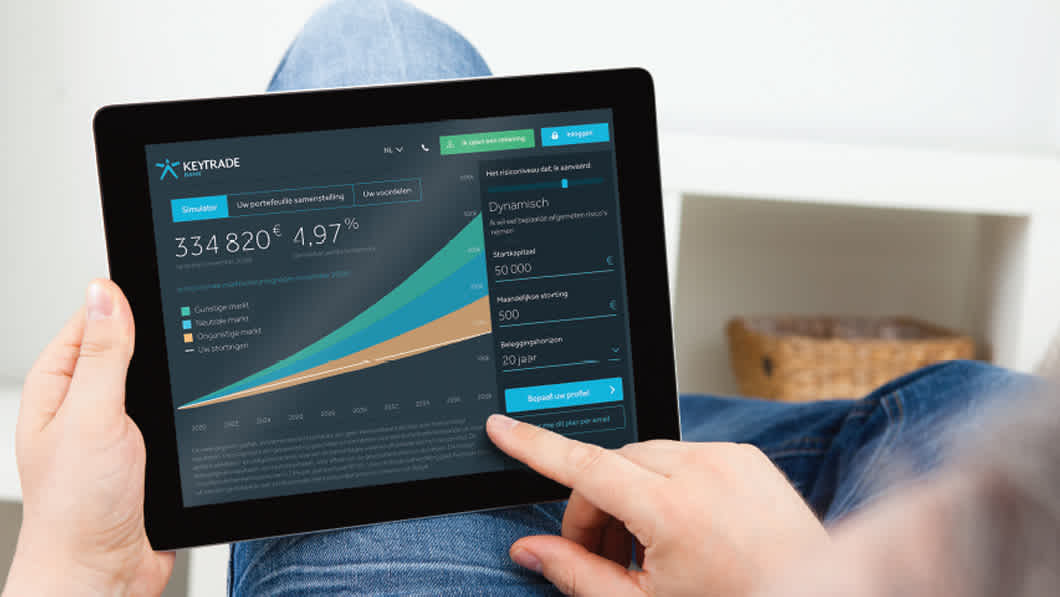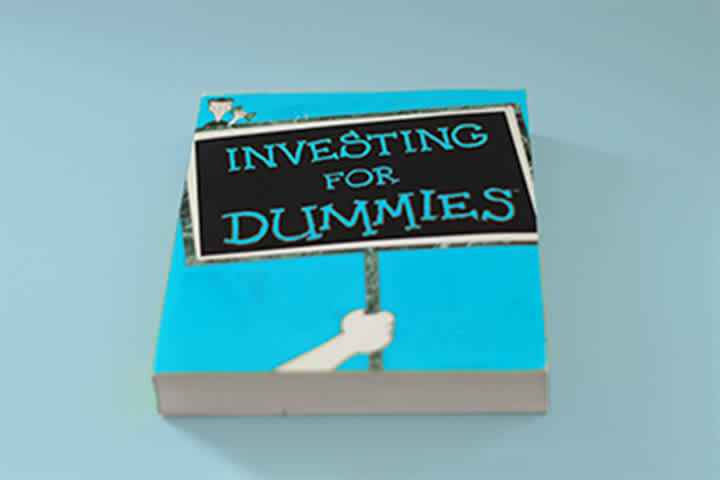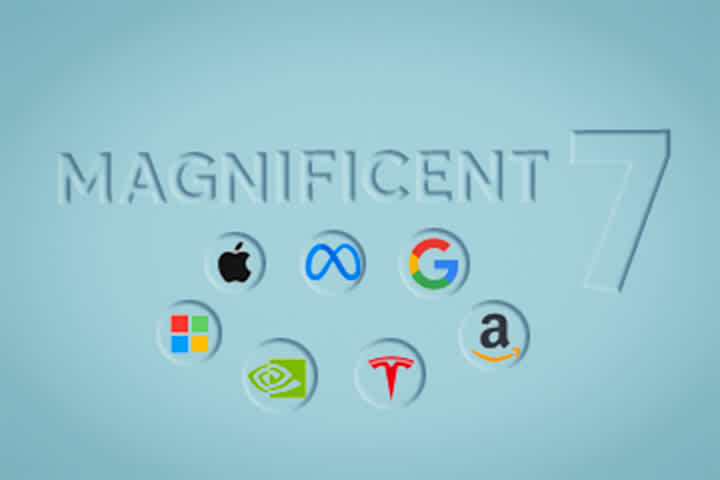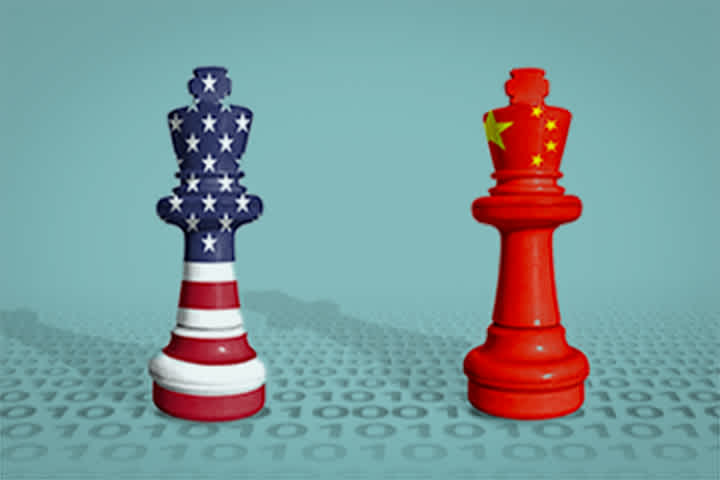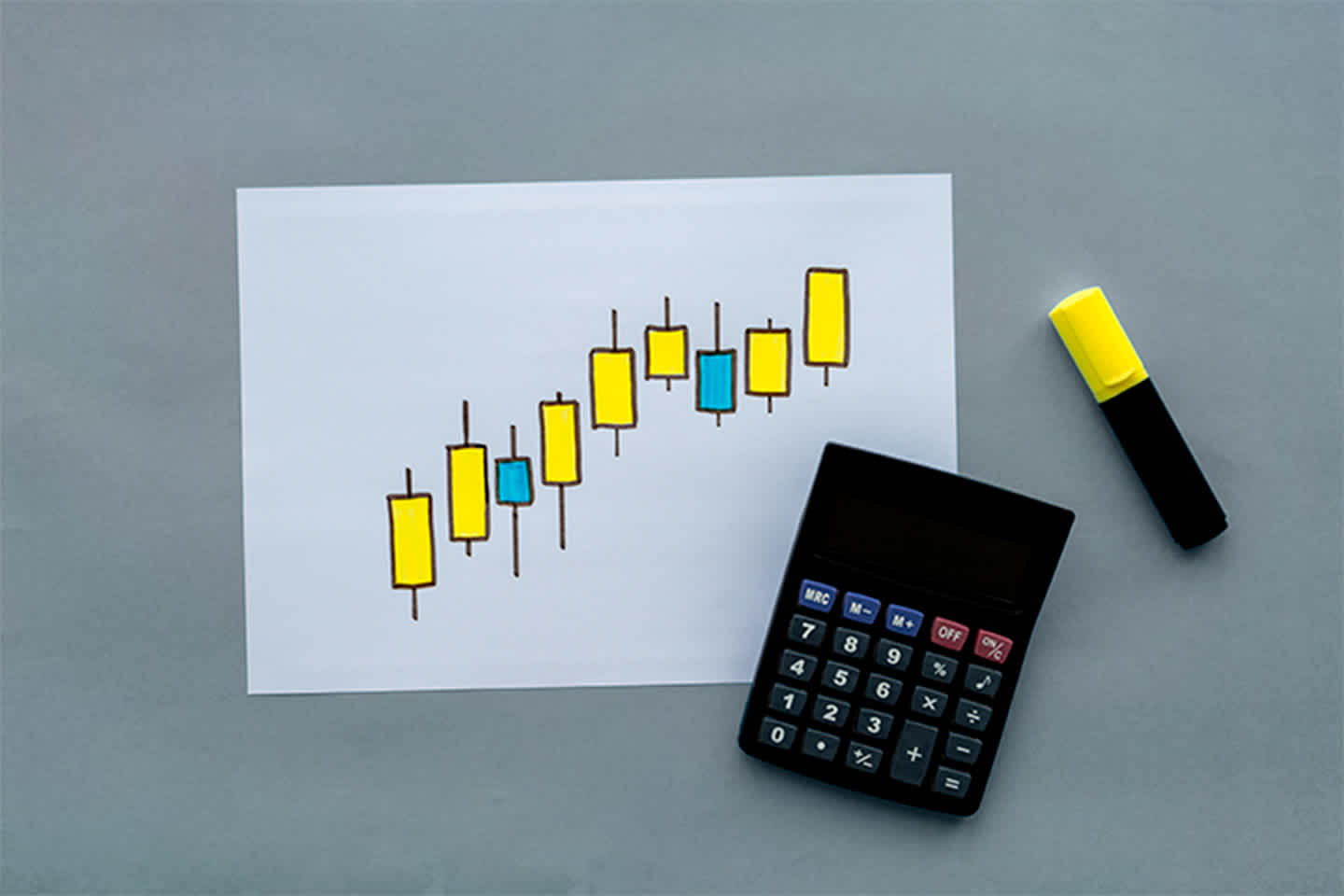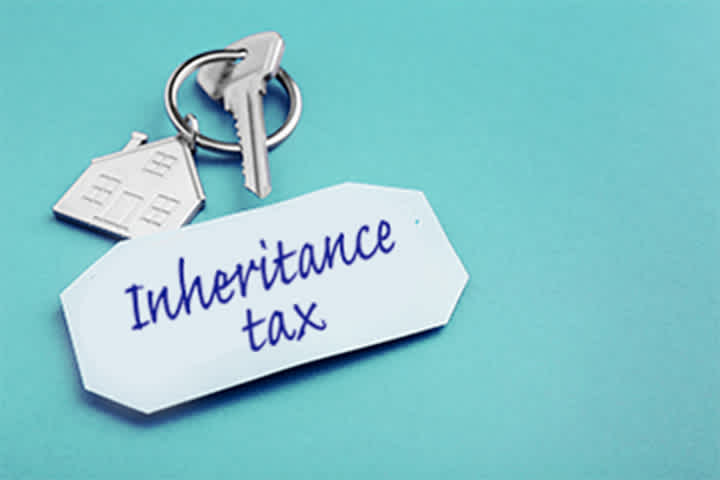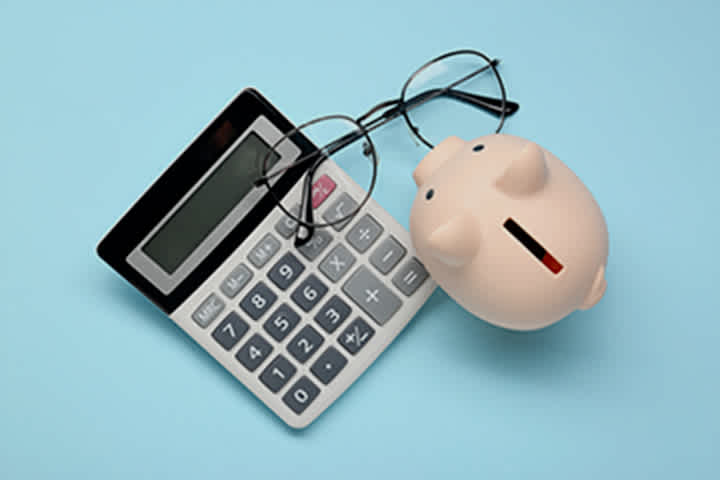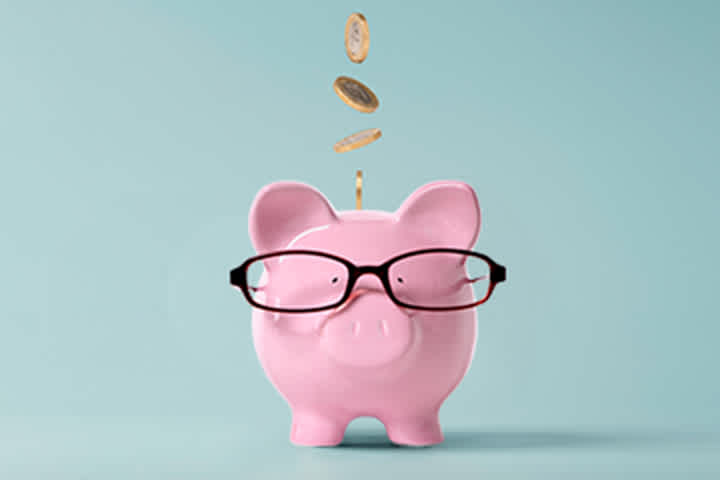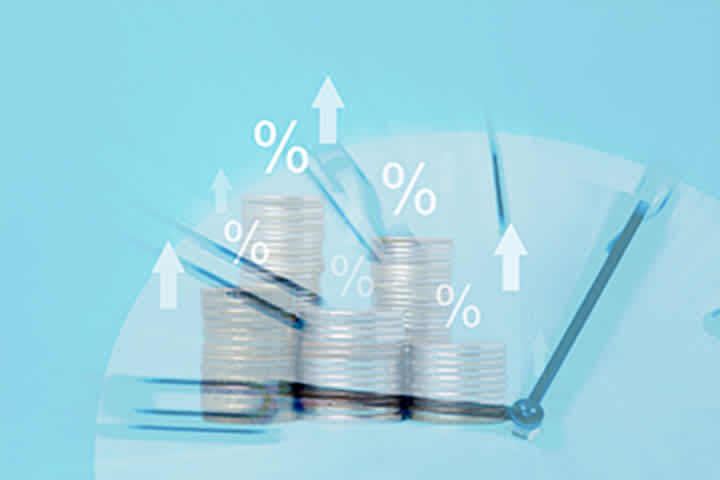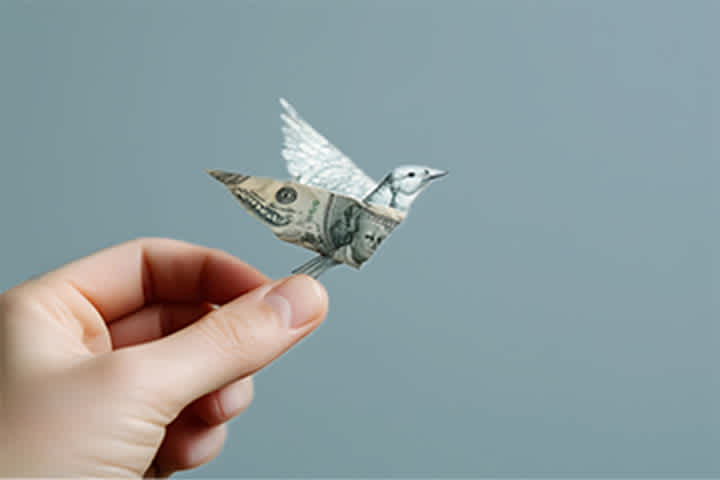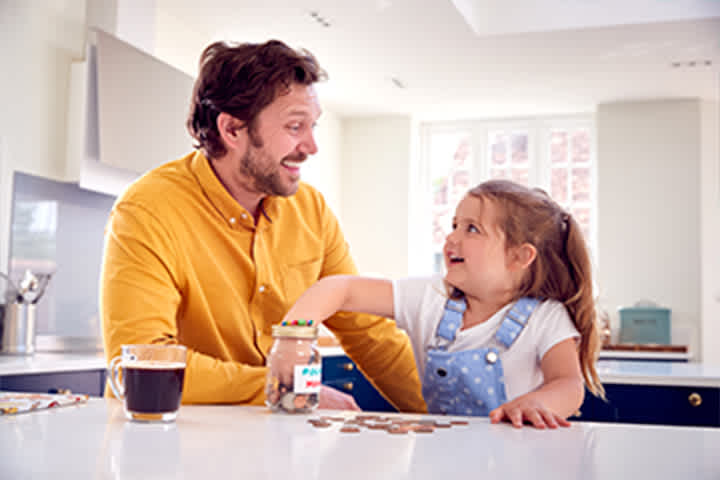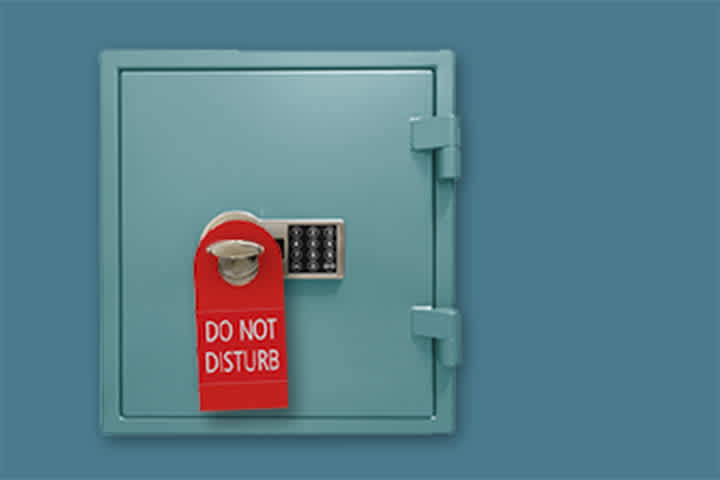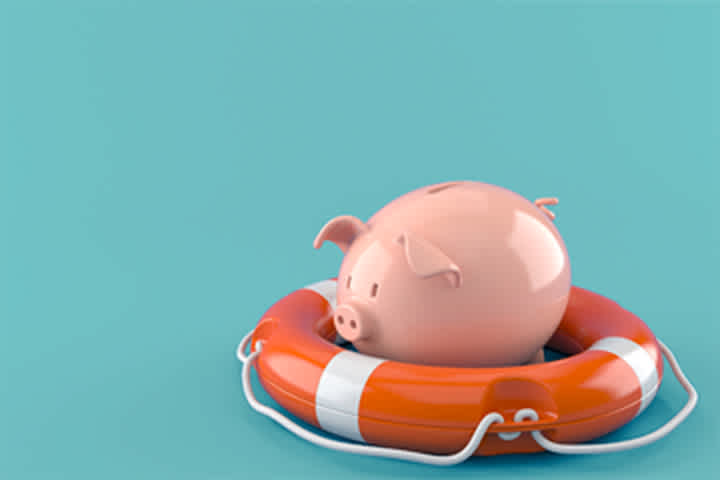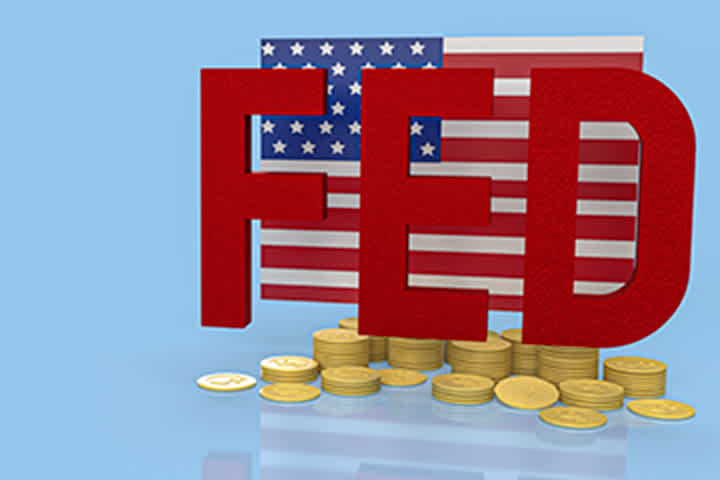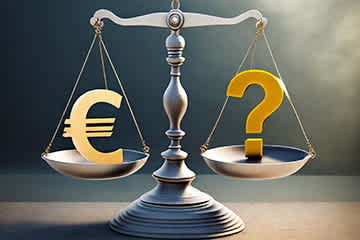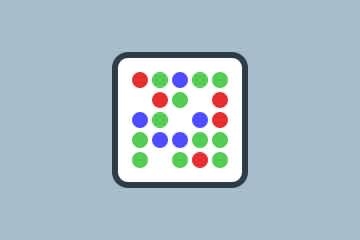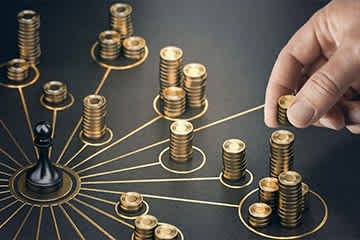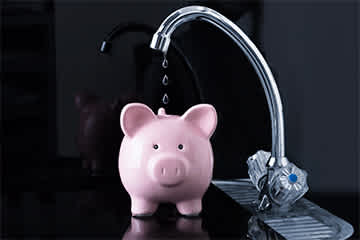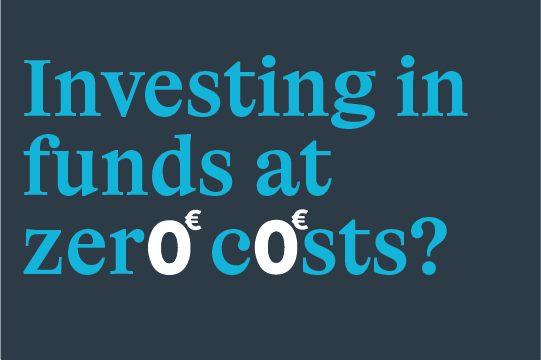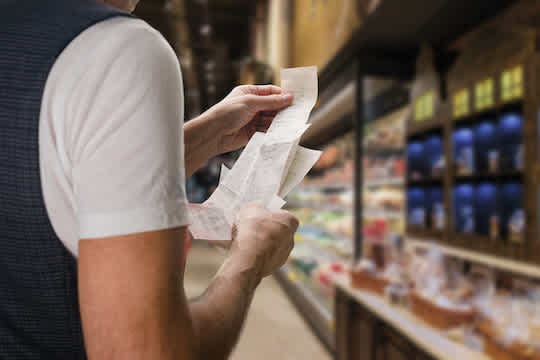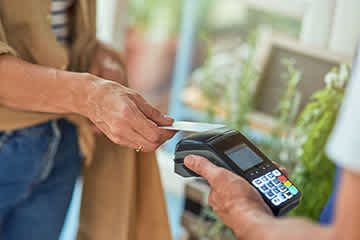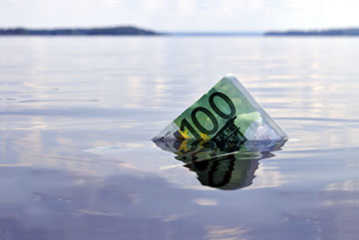Why a child deserves pocket money
Keytrade Bank
keytradebank.be
October 18, 2024
3 minutes to read
Money mistakes? It's better to waste a few euros in your childhood than large amounts as an adult. Pocket money teaches kids about the value of money.
1. Is giving pocket money a good idea?
Pocket money is definitely a good idea. It is a tool that teaches children how to manage money. However, simply slipping a few notes and coins to your child from time to time is not the right way to go about it. The importance of pocket money is intrinsically linked to the agreements you make about it with your children.
2. How do you make 'good agreements'?
- Always give the same amount at a set time.
- Clearly state what the pocket money is for: what do you expect your child to pay for themselves?
- You could draw up and sign a pocket money contract together and hang it somewhere. This will prevent any disagreements from happening later on.
- Remember that pocket money is not a wage and should not be taken away as punishment.
- Agree on the period the pocket money covers together and do not deviate from this.
Talk about the consequences in advance if the money runs out. If something goes wrong, responding to your child’s frustrations the right way is not easy. However, by setting out a clear agreement with your child at a young age ("Can't afford that festival ticket? That's on you..."), you may just help them avoid major problems later on in life that you can no longer solve as a parent.
3. What if your child wants to spend their pocket money on sweets or junk?
You don't always have to agree with them on their purchases. Feel free to let them make their own decisions for a while. They will learn the most from making their own mistakes and – perhaps more importantly – from talking about them. This is why it’s a good idea to set clear boundaries within which your child can experiment. A well-meaning lecture often has less of an effect than the experiences they have themselves. No matter how many "mistakes" your child makes, if you react consistently, the penny will hopefully drop sooner or later.
4. Will pocket money help your child make "good decisions" later as an adult?
Although pocket money is a very useful tool, it is not a watertight guarantee that will protect your children from financial mishaps later on. Pocket money is not a magic wand; it is just one part of their broader financial education. Giving pocket money can help children prepare for the financial responsibilities they will bear as adults. Various studies show that children who learn to save, budget and prioritise their own money are more likely to be financially aware as adults. As a parent or guardian, it is important to guide this process and actively teach children financial skills. This lays a solid foundation for financial decision-making and independence at a later age. How children manage money later on is clearly linked to how their parents manage their money themselves and the extent to which they talk to their children about money.
5. Is not giving any pocket money "wrong"?
There is no clear-cut answer to that question. If you don't give any pocket money, children won't be able to learn how to make their own mistakes and gain experience. Spending all your pocket money on sweets only to realise there is nothing left to buy that teddy bear you have wanted for so long is a valuable lesson for a 7-year-old. It is better to have those experiences as a child than as an adult. On the other hand, not everyone has the resources to give pocket money. Fortunately, there are other ways to make children aware of the value of money. Asking your child to go to the supermarket with a shopping list and your wallet can also be very educational. Alternatively, you can involve your child in a major purchase by comparing prices. Getting a holiday job or earning a little extra doing chores are also great ideas.

6. When exactly should you start?
It is best not to start giving your child pocket money until they can do sums and they understand the value of money. A 3-year-old will consider a coin as a toy. But a 6-year-old can usually make some calculations already, recognise the notes and coins, and appreciate money as a medium of exchange. This is why many parents start giving pocket money around that age. In the beginning, children will probably want to spend the pocket money right away. As they get older, their interest in money will grow and their sense of time will improve. They will understand that they can buy something more valuable later on if they put some money aside now.
7. How much should you give?
It is best to start with small amounts and increase them with age. A helpful rule is that with more pocket money comes more responsibilities for your child. The amount depends on what your child is expected to buy with it: just toys, or their bus pass, clothes, sports club membership and school lunch as well? The amount also depends on what you think is reasonable, what suits your budget and how mature your child is.
You can then increase the amount and make the appropriate arrangements every year or every two years. Between the ages of 6 and 10, a few euros a week is a good guideline to learn the basic principles of saving. Between the ages of 11 and 14, you can gradually move towards 5 to 10 euros, depending on their interests, activities and responsibilities. A sum of 10 to 25 euros is customary between the ages of 15 and 18. From that age, young people may want to start paying for their own phone bills, clothes or leisure activities, for example. This gradually gives them more autonomy and teaches them to manage larger sums. Do I choose branded clothes or "regular" clothes? Do I buy a new pencil case because my old one is no longer trendy or because it is actually worn out? Do I cycle to my Scouts meeting or take the bus? You can gradually make your child partly responsible for their financial choices.
8. Should pocket money also be used to build savings?
Pocket money can be an excellent way to teach children how to save. When (older) children put aside some of their pocket money, they learn about the value of money and the importance of patience when building financial reserves. As they get older and the concept of returns becomes more important, it may be a good idea to consider investing. This allows your child to see their money grow and to learn about how investments and the stock market work. This can start with a simple, accessible investment plan.
9. What's best: electronic pocket money or cash?
The answer depends on what you want your child to learn. Cash helps make the value of money tangible for young children: they literally see their money dwindle after a purchase. Handling notes and coins, using them to pay and receiving change are all experiences that contribute to their understanding of money. As your child grows older, electronic pocket money is a logical next step. Young people are growing up in a world where digital payments are the norm. Having pocket money in their youth account teaches your child how to use a bank account and bank card, how to bank online and how to pay with an app. This can prepare them for the reality of electronic payments, something they will do every day as adults.
10. Should I also give pocket money as a reward for chores?
Although some parents give their children pocket money for completing chores, linking the two may send a confusing message. The idea that children only get money when they do something may make them feel that they should be rewarded for everything. And some chores children should simply get on with as a part of family life, without any type of reward: setting the table, washing up or tidying their room spring to mind.
However, it may make sense to reward them for additional, larger tasks that fall outside their daily 'responsibilities'. This will teach them that sometimes it takes a little more effort to get something extra. It is therefore a matter of striking the right balance and making a clear distinction between regular household tasks and exceptional tasks for which compensation is justified. In that case, it is better to call it 'money for odd jobs' rather than 'pocket money'.
11. When can you start investing for your child?
Starting at a young age is the best possible time. The earlier you start, the more time the money has to grow. A simple way to get started is with a periodic payment plan, where you make fixed payments every month or quarter in, say, funds. This way, you spread your money across different shares, bonds or other assets, thereby also spreading the risk.
If you want to involve your children in investing, you can explain the concept in simple terms. You can, for example, compare it to planting a tree: the earlier you start, the more time the tree has to grow. You can also see investment as the 'growth' of money over time. By following up the plan together, your children can learn about market volatility, returns and patience. They will realise that investing is not a get-rich-quick solution, but rather a long-term strategy that requires dedication and discipline.
Want to get started?
> Open a free current and savings account
> Invest an amount from 25 euros per year for your child
Other articles that might interest you
![blogHeader-SchenkingRegistreren]()
Gifting money: register or take the risk?
![blogHeader-USRecession]()
Will there be a recession in the US?
![blogHeader-cruise]()
As cruise companies gather steam, are their shares doing the same?
![iPad]()
Monthly video 2025
![blog-InvestingFor]()
A beginner's guide to buying shares in five steps
![blogHeader-Tesla]()
Is Elon Musk about to crash Tesla shares?
![blogHeader-RIP]()
Your family member dies: how to manage their banking
![GraphOfTheWeek]()
American optimism reversing: time to head for the exit?
![blog-Mag7]()
Have the Magnificent 7 lost their magic?
![blogHeader-kostenAamkoo]()
What costs are involved in buying a home?
![Defensieaandelen]()
An investment guide to Europe's military resurgence
![blogHeader-Aristo]()
Dividend aristocrats: a good beginner investment strategy?
![blogHeader-obesity]()
Has the obesity trade peaked?
![iPad]()
Monthly video 2024
![blogHeader-DeepSeek]()
How to invest in AI after the DeepSeek bomb
![Blog-Header-Invest?]()
What is investing, and why is it an option for you?
![blog-zorgvolmacht]()
12 questions and answers about a lasting power of attorney
![blog-inheritanceT]()
What if you are unable to pay the inheritance tax?
![blogHeader-GeertVanHerc]()
Investors missed out on many great opportunities in 2024
![blog-ouderKoppel]()
40 years of pension savings: what will you spend it on (literally)?
![blog-AstroMars]()
From FOMO to ZERO bank account? 5x pension savings to the rescue
![pension pilars]()
Start growing your pension sooner rather than later
![blogHeader-bestchoicesP]()
Pension savings returns: these choices give the maximum payout
![blogHeader-MonthlySavin]()
What monthly pension savings for a maximum return?
![blogHeader-VrouwenPensi]()
Why pension planning is even more important for women
![Woman lying down in a hamac on a terrace]()
Passive investing: less effort for a better return
![blogHeader-americaFirst]()
United States 1, Everyone Else 0
![blogHeader-retiredVersi]()
What would the retired version of you say to yourself?
![blog-whenInvest]()
When should you start investing? Seven potential key moments in your life
![blogHeader-Fire]()
FIRE: how hot is this financial trend and how does it work?
![blogHeader-TypeBeleger]()
What type of investor are you? Take the quiz
![stop-loss 2063917100]()
Did you just purchase shares? Why you should immediately set a stop-loss
![blog-EpargeEnfant]()
How can you teach your child to save? 12 tips
![blogHeader-financial in]()
Are there shortcuts to becoming financially independent?
![Blog-header-sleepingAccount]()
Do you have a dormant account? This is how you can check!
![GraphOfTheWeek]()
A potential worldwide trade war is claiming European victims
![blogHeader-animals]()
Ever thought of investing in the pet industry?
![GraphOfTheWeek]()
Have long-term interest rates once again started a 40-year uptrend?
![blog-header-USElection]()
Democrats or Republicans: which party is better for your investments?
![blog-spaargeld]()
Guide: how much you need in savings
![GraphOfTheWeek]()
Graph of the Week: Magnificent 7 vs 2000s Tech Bubble
![Active ETF]()
Actively managed ETFs: the best of both worlds?
![GraphOfTheWeek]()
Investing at new highs is an elevated idea
![blogHeader-InvestFood]()
6 reasons to invest in food
![blog-ZonderGeldzo]()
Checklist: travel without any money worries
![sharing-data 1153889713]()
Take a moment to read this before sharing your data
![belgian-shares 1908487531]()
Investing in Belgian shares: the dangers of too many domestic securities
![pay-favourite 1835827360]()
Investors, never pay too much for your favourite share!
![Man and woman embracing with a key in hand]()
Buying real estate together? Consider a rights of survivorship clause
![friends-cheaper-travel 1680186190]()
What your friends forgot to tell you about cheaper travel
Investing in football shares: what's the score?
![blog-Basisrente]()
Basic interest rate and loyalty bonus: what does your savings behaviour say about you?
![blog-kleinkindHel]()
Helping your (grand)children to buy a home: what are the options?
![blog-dividentenRe]()
Why high dividend yields can be a poisoned chalice
![blogHeader-SpaarrentenV]()
Comparing savings accounts: where do you put your money?
![blogHeader-WeinigTijd]()
3 ways to invest when you don't have much time.
![blogHeader-ChinaBelegge]()
Is it time to invest in Chinese stocks again?
![Graph of the week]()
Europe is no longer falling behind!
![blogHeader-fondsKiezen]()
How do you select an investment fund for your child?
![blogHeader-Veilig onlin]()
Secure online banking: how can you protect your finances?
![blogHeader-SparenVoorKi]()
How can I invest or save better for my child?
![blogHeader-Online reken]()
Opening an online bank account: what is holding you back?
![trackers capi-distri]()
The difference between distribution and accumulation for funds or trackers
![blogHeader-TauxInteretB]()
Will ultra-low interest rates make a comeback? Probably not…
![blogHeader-S&P500]()
Why the S&P 500 does and does not have a problem
![blogHeader-Robotica]()
Robotics: From science fiction to science
![blogHeader-Vastgoedaand]()
Property shares: ripe for a comeback?
![blog-geldMarktFon]()
Are money market funds an attractive investment?
![Graph of the week]()
Is joining the BEL20 actually good for you?
![blogHeader-HogereRendem]()
Is it the right time to invest in bonds?
![blogHeader-EersteHulp]()
Stock market records: some down-to-earth advice on how to respond to dazzling heights
![blogHeader-PeriodiekBel]()
Have you ever thought about investing for your children?
![blog-tweedeLening]()
Borrowing for a second home: what are your options?
![Graph of the week]()
Can we still say "Magnificent Seven"? Or should it be "2 Unlimited "?
![Blog-VoyageMars]()
How can you invest in space travel?
![blogHeader-ZelfOfLaten]()
Invest yourself or have someone do it for you: do you have to choose?
![Blog-Loan]()
How much can you borrow for a home?
![tell-tax-man 1044303100]()
What do you have to tell the tax man about your money and investments?
![iPad]()
Monthly video 2023
![myth-sustainable 1059639044]()
Five myths about sustainable investing
![Blog-Viellissement]()
How can you invest in an ageing population?
![Image article small caps]()
Small company shares with big opportunities?
![panneaux solaires]()
6 reasons why installing solar panels is still worthwhile in 2024
![Blog-Vote]()
How do elections affect the stock market?
![blog-holding]()
8 questions and answers about holding companies
![Picture article gold]()
Golden days? Why to invest in gold (or not)
![blog-aLouer-TeHuu]()
Is a buy-to-let property a smart investment?
![blog-marchéAfrica]()
Nigeria: a new hot spot for adventurous investors?
![roerende voorheffing]()
Exemption from withholding tax on dividends
![Photo article challenges stock investor]()
Will bonds beat shares in 2024?
![emerging markets 2]()
Investing in emerging markets: are investment funds a smarter buy than trackers?
![extra-softkey]()
Don't forget to create an extra access!
![blog-short]()
Shorting: what is it and how does it work?
![blog-goldenRules]()
The 10 principles of stock market success
![payer sans contact]()
The advantages and disadvantages of contactless payment
![blog energyInvestment]()
How to invest in the energy transition?
![free-credit-cards]()
Keytrade Bank has one of the few free credit cards on the Belgian market
![hacker cat]()
How to put phishers out of a job
Which sectors should remain overweight following the latest rate hike?
![8 tijdloze regels]()
8 timeless rules for investors
![Geert Van Herck]()
Investors are not afraid of risks! Or not yet?
![nervous-stock-market-200days-moving-average 534464629]()
Get ready for the last quarter!
![Biodiversity]()
Investing in biodiversity: can Wall Street save the rainforest?
Investing in AI: hype or a ticket to the future?
![blog-savingForSak]()
Saving for the sake of saving? Or with a goal in mind?
![blog-PrepareYours]()
How do you prepare financially for a longer life?
![blog-Recession]()
Handling recessions: a manual
![blog-inequal incomes]()
How to navigate a relationship with lopsided incomes?
![blog-financial conflict]()
Avoiding and dealing with conflicts on financial matters: a guide
![blog-sellInMayAndGoAway]()
Sell in May? Is it really such a good idea?
![blog-compte join]()
1 account for the both of you? Or separate accounts? Or a combo?
![myth-sustainable 1059639044]()
Make an impact with your Keyprivate
![diversification]()
How much diversification is enough for your portfolio?
![KID eurosign]()
From KIID to KID: new rules, better investment decisions
![intelligent mobility]()
Which investment opportunities are available on the road to smart mobility?
![blog endOfAmericanHegemony]()
Is the end nigh for American dominance?
![blog healthcareInvestment]()
A vitamin shot for your investments
![blog waterInvestment]()
Does water earn a place in your portfolio?
![economy-dip 1912291450]()
What is the difference between a tracker and a fund?
![Bonds]()
Bonds to rise in 2023?
![Visa Platinum on Silvery Background (top block)]()
6 things you need to know about your Keytrade Bank credit card
![iPad]()
Monthly video 2022
![equity-investors-economic-data 1891162513]()
What is technical analysis and how does it work?
![AchatPensionComp]()
How to buy real estate with your supplementary pension (even though you have not retired yet)
![Funds for free]()
Less costs? Yes, please.
![situation-russia-ukraine 1924764779]()
The situation following the Russian invasion of Ukraine
![something-new-investment-world]()
There's something new in the air in the investment world!
![thematic-funds 530010547]()
6 points to consider for thematic investing
![belgian-traders-american-stock-market-rush-reddit]()
Belgian traders tempted by American stock market rush and Reddit investors
![nervous-stock-market-200days-moving-average 534464629]()
Getting nervous about the stock market? Take a look at the 200-day moving average
![esg-rating 1169454484]()
How do you find out what a company’s ESG rating is?
![esg-alphabet]()
ESG's alphabet
![green-investing 1324554443]()
With or without the coronavirus: why green investing remains just as relevant as before
![impact-investment 1820196929]()
Impact investing: sustainable investments with that little bit more
![sustainable-investing 1613013514]()
Sustainable investing: what, why and how?
![inflation 2023622432]()
How can you make an investment portfolio inflation-resistant?
![invest-success 1033103851]()
All in our fund market at the same price
![impact-luck 1085827403]()
How to invest if you're on a tight budget
![offer-property 1982828150]()
No extra costs ...
![safe-contactless 1931956346]()
CARD STOP has a new number! 078 170 170
![inflation-savings 1051141721]()
This is what the tax authorities know about your money
![vix 1827107540]()
Investing in dividend shares: what to look for?
![700k-given 1577327479]()
10 ways to save money with apps
![Geert Van Herck]()
Monthly video 2021
![investment-podcasts 1433456570]()
Podcasts about money and investments (part one)
![stop-loss 2063917100]()
No group insurance plan? What are the alternatives?
![math-stock-market 68612446]()
Les plafonds fiscaux pour les années de revenus de 2020 à 2023
![investment-style 2045763443]()
Which investment style and which regions would benefit from renewed growth in interest rates?
![inflation-commodities 1046709259]()
Inflation? Grab some commodities for your portfolio!
![rising-star 441848857]()
Which shares will be the rising stars once interest rates start increasing again?
![financial-health 1414013324]()
10 things you can do within a day to improve your financial health
![stay-at-hotel 1676771632]()
Enjoy your stay at the hotel and pay less
![choose-trackers 1382662748]()
How to choose a tracker (ETF)
![safe-investing 268438862]()
Gold, cash and government bonds: how safe are safe havens?
![co-housing-rules 1613595520]()
Cohousing rules
![buffet-bezos-musk-p-KCm6xB9I-unsplash]()
The halo effect: why we are buying the shares of Buffett, Bezos and Musk
![investing-for-your-child 1340966087]()
Why investing for your child is a good idea
![timing-is-everything 390959932]()
Timing is everything: how to choose the right time to enter the stock exchange?
![iPad]()
La technologie préserve les investisseurs contre l'utopie
![funadamental-analysis 1555072109]()
What is fundamental analysis, and how does it work?
![micro-caps 516415369]()
Why (not) invest in micro-caps?
![rising-debt 85866430]()
Rising debt: is it a problem?
![safe-contactless 1931956346]()
How safe are contactless payments?
![capitalisation-or-distribution 562383328]()
Funds and trackers: do you opt for capitalisation or distribution?
![balance-investment 604545992]()
What do I do to balance my investments?
![share-bank-card 1080072473]()
CARD STOP has a new number! 078 170 170
![treacherous-stock-market 1033103887]()
The treacherous stock market
![society-without-cash 1932714896]()
On the way to a society without cash?
![second-residence 2015005337]()
Buying a second residence: with savings, investments or a loan?
![second-hand-online 571885318]()
A must read for when you spotted a second-hand bargain online
![megatrend 775242391]()
Always have a megatrend in your portfolio
![math-stock-market 68612446]()
Maths on the stock market
![impact-luck 1085827403]()
The impact of luck on investments
![handiest-financial-apps 1008711622]()
The handiest financial apps (and free as well)
![global-world-index 289143614]()
Are you investing really globally with a tracker on a world index?
![equity-investors-economic-data 1891162513]()
Equity investors look beyond gloomy economic data
![7-investment-themes 272484338]()
7 investment themes for 2029 (for which you can get a head start already)
![10-rules-lifelong-success 1761072161]()
Ten basic rules for lifelong success on the stock market
![share-bank-card 1080072473]()
Share everything with peace of mind. Except your bank cards.
![economy-dip 1912291450]()
Any dip in the global economy appears to just a passing blip!
![end-year-rally 1310382322]()
Are we heading into a year-end rally by the stock markets?
![coronablog 1670847745]()
Coronablog de Geert Van Herck: La panique atteint des sommets… énième épisode
![seven-myths 1756375427]()
Seven investment myths
![blended-family 1563671599]()
Blended family: shared savings account or keep things separate?
![emerging 1050235859]()
Emerging countries are lagging behind!
![first-aid-admin 2082725440]()
First Aid for Your (Financial) Administration
![tip-password-safe 735137110]()
Tips from an expert: how to keep your passwords safe
![coronablog 1670847745]()
Coronavirus blog Geert Van Herck: Property once again fails to deliver diversification bonus
![coronablog 1670847745]()
Coronavirus blog by Geert Van Herck: S&P 500 indicates a positive trend
![retirement-pension 2093526529]()
What retirement pension will you get later?
![financial-stress 1740212186]()
How can we cope with financial stress?
![browser-card 1186332706]()
Saving your payment card details in your browser: yay or nay?
![700k-given 1577327479]()
No extra costs. Yet 700,000 euros gladly given to you, our customers!
![china-dollar 1818989204]()
Can China make the dollar crash?
![us-dominance 1664904235]()
US stock market dominance not coming to an end yet!
![trackers-bubble 533763148]()
Are trackers the latest bubble on the financial markets?
![investment-podcasts 1433456570]()
Podcasts about money and investments (part two)
![mining-sector 1741881131]()
Anxious about inflation? Have you ever considered the mining sector?
![msci-emerging 129310280]()
Will the MSCI Emerging Markets index become the next big thing?
![inflation-savings 1051141721]()
What does higher inflation do to your savings and investments?
![gold 1680311416]()
Going for gold? Gold is apparently going for it.
![invest-success 1033103851]()
How can you invest successfully?
![share-suits-you 1134551189]()
Which shares suit you?


